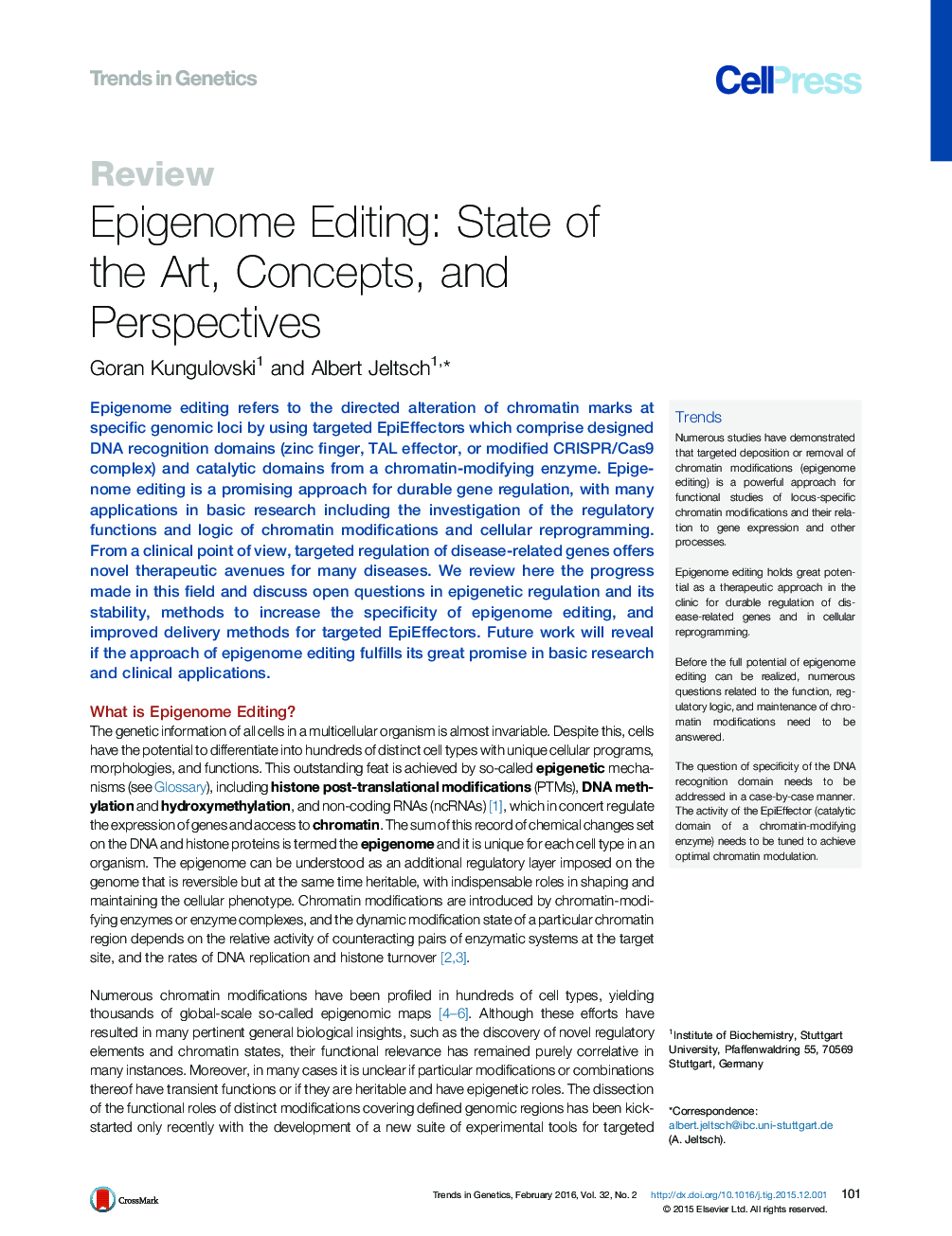| کد مقاله | کد نشریه | سال انتشار | مقاله انگلیسی | نسخه تمام متن |
|---|---|---|---|---|
| 2824667 | 1161842 | 2016 | 13 صفحه PDF | دانلود رایگان |

Epigenome editing refers to the directed alteration of chromatin marks at specific genomic loci by using targeted EpiEffectors which comprise designed DNA recognition domains (zinc finger, TAL effector, or modified CRISPR/Cas9 complex) and catalytic domains from a chromatin-modifying enzyme. Epigenome editing is a promising approach for durable gene regulation, with many applications in basic research including the investigation of the regulatory functions and logic of chromatin modifications and cellular reprogramming. From a clinical point of view, targeted regulation of disease-related genes offers novel therapeutic avenues for many diseases. We review here the progress made in this field and discuss open questions in epigenetic regulation and its stability, methods to increase the specificity of epigenome editing, and improved delivery methods for targeted EpiEffectors. Future work will reveal if the approach of epigenome editing fulfills its great promise in basic research and clinical applications.
TrendsNumerous studies have demonstrated that targeted deposition or removal of chromatin modifications (epigenome editing) is a powerful approach for functional studies of locus-specific chromatin modifications and their relation to gene expression and other processes.Epigenome editing holds great potential as a therapeutic approach in the clinic for durable regulation of disease-related genes and in cellular reprogramming.Before the full potential of epigenome editing can be realized, numerous questions related to the function, regulatory logic, and maintenance of chromatin modifications need to be answered.The question of specificity of the DNA recognition domain needs to be addressed in a case-by-case manner. The activity of the EpiEffector (catalytic domain of a chromatin-modifying enzyme) needs to be tuned to achieve optimal chromatin modulation.
Journal: - Volume 32, Issue 2, February 2016, Pages 101–113